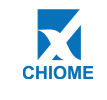Many advances in antitumor therapies have been achieved with antagonistic antibodies targeting the programmed cell death protein 1 (PD-1) or its ligand (PD-L1); however, many cancer patients still develop resistance to anti–PD-1/PD-L1 treatments often associated with the upregulation of other immune checkpoints such as Lymphocyte Activation Gene-3 (LAG-3). In order to verify whether it is possible to overcome these limits, we analyzed and compared the effects of combinations of the clinically validated anti-LAG-3 mAb (Relatlimab) with anti-PD-1 (Pembrolizumab) or anti-PD-L1 (Atezolizumab) monoclonal antibodies (mAbs) with those of novel bispecific tribodies (TRs), called TR0304 and TR0506, previously generated in our lab by combining the binding moieties of novel human antibodies targeting the same ICs of the mentioned mAbs. In particular, TR0304, made up of a Fab derived from an anti-PD-L1 mAb and two single-chain variable fragments (scFvs) derived from an anti-LAG-3 mAb, was tested in comparison with Relatlimab plus Atezolizumab, and TR0506, made up of an antigen-binding fragment (Fab) derived from the same anti-LAG-3 mAb and two scFvs derived from an anti-PD-1 mAb, was tested in comparison with Relatlimab and Pembrolizumab. We found that the two novel TRs showed similar binding affinity to the targets with respect to validated mAbs, even though they recognized distinct or only partially overlapping epitopes. When tested for their functional properties, they showed an increased ability to induce lymphocyte activation and stronger in vitro cytotoxicity against tumor cells compared to combinatorial treatments of clinically validated mAbs. Considering that tribodies also have other advantages with respect to combinatorial treatments, such as reduced production costs and lower dose requirements, we think that these novel immunomodulatory TRs could be used for therapeutic applications, particularly in monotherapy-resistant cancer patients.








